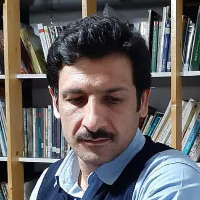Evaluating the Effects of Using Geometric Cognition of Structures in Architectural Design; The Case of Architecture Students
Extensive research has been done on various aspects of structural knowledge. The main problem with most results is the lack of sufficient attention to how structural knowledge should be present in the design process. Structural knowledge contains two main types of cognition: numerical and geometric. With both cognitions having their merits in the design process, structural cognition deserves to be present from initial to implementation stages; and it is the important and valuable position of geometry that has been ignored amidst computational difficulties and the development of structural design and analytical tools. Many structural solutions are realised based on geometrical cognition. The main purpose of this study is to evaluate the effect of geometric cognition on activities related to structural design in architecture. The study starts with thoroughly introducing the aspects of geometric cognition of the structure. Then, the quantitative research strategy is used to statistically measure the two parameters of satisfaction and skill enhancement of architecture students following the application of geometric cognition method in structural design. For quantitative analysis, the paired t-test method is used using SPSS software. The results show that the use of geometric cognition has a positive effect on the level of satisfaction and skill of participants in applying structural knowledge in architectural designs.
-
The Role of Environmental Factors on the Sense of Spirituality in Iran's Mosques based on Grounded Theory (Scope of Study: Mosques of Yazd and Isfahan)
A. Khorsandian, M. Mahmoudi Kamel Abad *, A. Noghrekar
Geographical Research, -
The psychological role of environmental relaxation in Islamic architecture and its physical components in the quality of therapeutic space (experimental witness: Isfahan Askarieh Hospital)
Mahnaz Mirdamadi, Mahdi Mahmoudi Kamelabad *, Ramin Madani, Mohamad Masoud
Islamic Art Studies,



